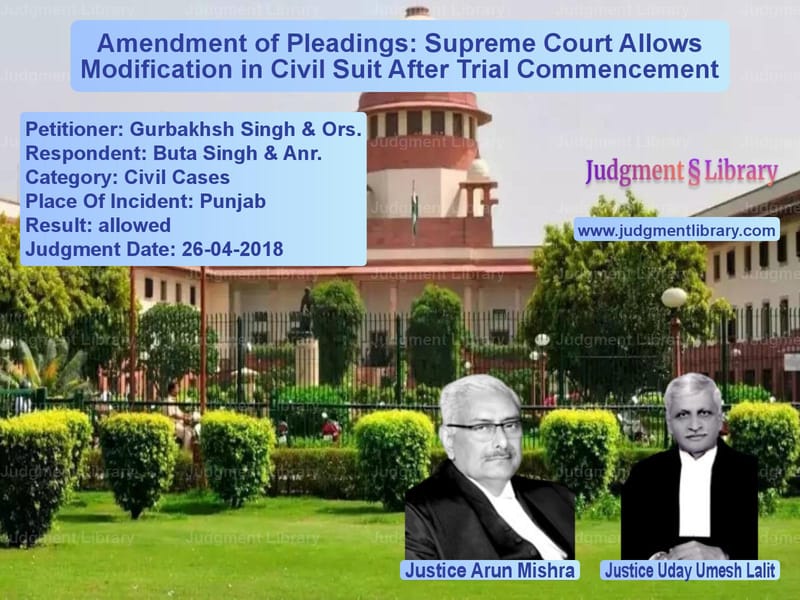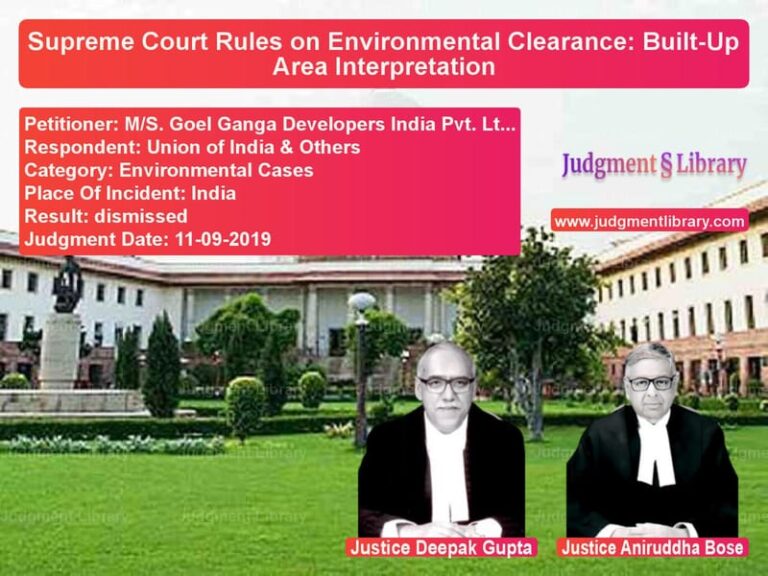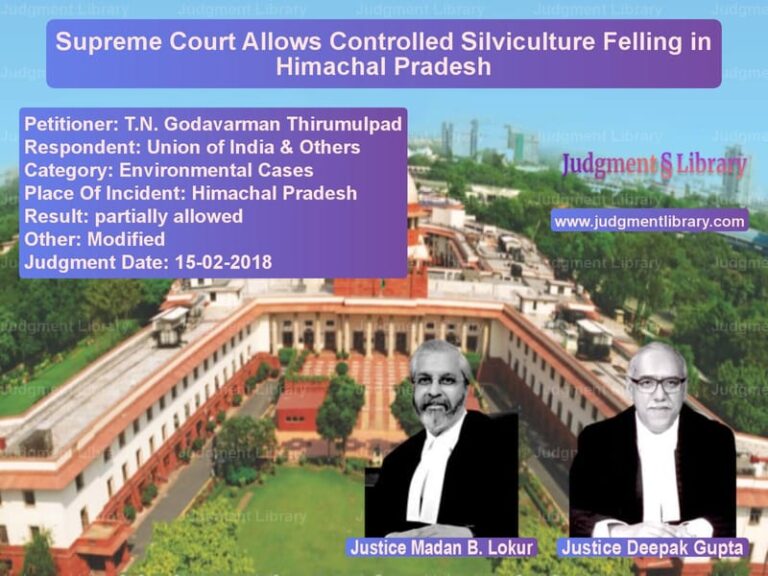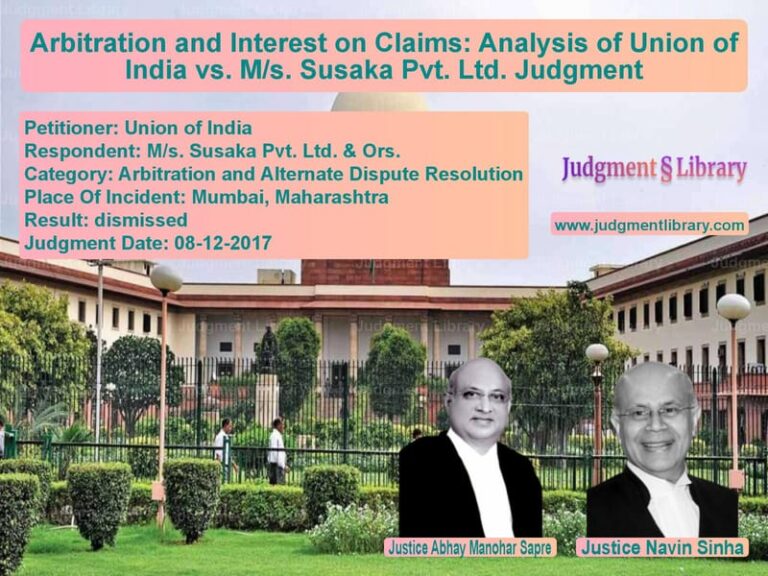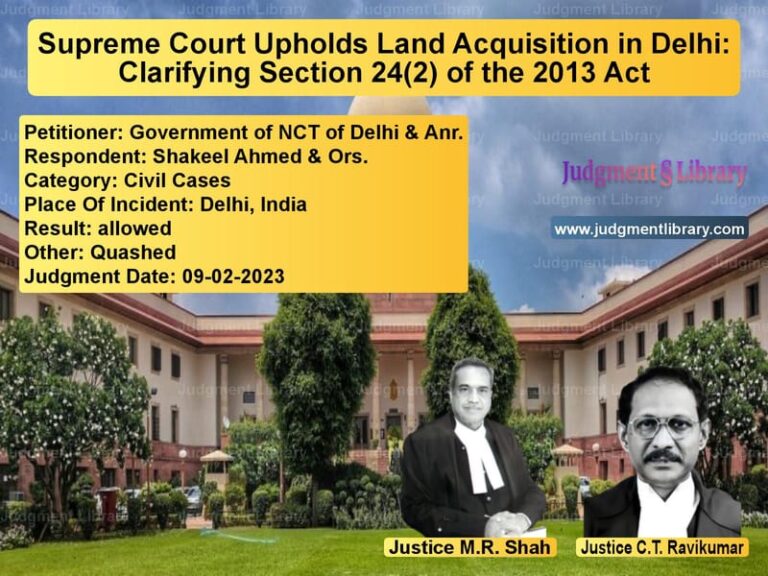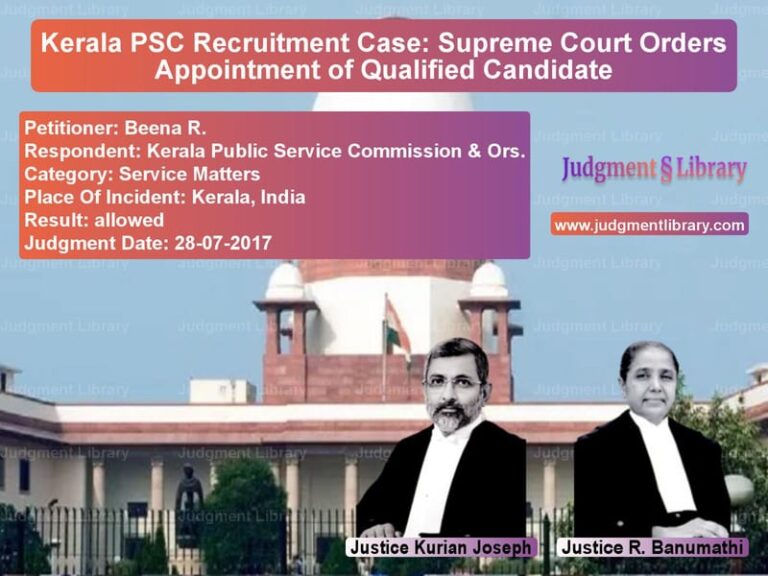Amendment of Pleadings: Supreme Court Allows Modification in Civil Suit After Trial Commencement
The Supreme Court of India recently ruled on an important procedural aspect of civil litigation in the case of Gurbakhsh Singh & Ors. v. Buta Singh & Anr.. The judgment addresses whether an amendment to the plaint can be allowed after the commencement of the trial. The Court overturned the decisions of the lower courts and permitted the amendment, clarifying the application of the proviso to Order 6 Rule 17 of the Code of Civil Procedure (CPC).
Background of the Case
The case originated from a civil suit filed by respondent Buta Singh in 1968 for declaration based on reversionary rights. This suit was decreed ex parte against the predecessor-in-interest of the appellants on June 30, 1969. After learning about the ex parte decree, the appellants filed a separate suit to set aside the decree, alleging procedural irregularities.
During the proceedings, the appellants claimed that the original court file related to Civil Suit No. 195 of 1968 was not traceable in the record room, making it difficult for them to access relevant details. After the framing of issues and examination of two official witnesses, the appellants sought to amend the plaint by incorporating specific details regarding land records and procedural errors.
Key Amendments Sought by the Appellants
- The appellants contended that the plaintiff in the original suit had deliberately used old land numbers (before land consolidation in 1961-62) to mislead the court.
- The ex parte decree was obtained without disclosing complete details of the land and the legal heirs of the original vendor.
- They requested an amendment to specify the khasra numbers of the disputed property and clarify that if the decree was not set aside, the plaintiff (respondent) could at best claim a share only to the extent of 1/9th of the total property.
Lower Courts’ Decision
The trial court dismissed the amendment application, holding that:
- The appellants had failed to exercise due diligence in seeking the amendment earlier.
- The amendment could have been raised before the commencement of the trial.
The Punjab and Haryana High Court upheld the trial court’s decision, stating that while the amendment did not change the nature of the suit, it was impermissible under the proviso to Order 6 Rule 17 CPC, which bars amendments after trial commencement unless due diligence is demonstrated.
Supreme Court’s Observations
The Supreme Court took a different view, emphasizing that procedural rules should not obstruct the cause of justice. The Court made several key observations:
- “The non-traceability of the court file from the 1968 suit created genuine difficulties for the appellants in obtaining correct particulars in time.”
- “At the time of filing the amendment application, only two official witnesses had been examined. The trial had not progressed significantly.”
- “The nature of the amendment did not change the character of the suit or introduce fresh grounds but merely provided additional details.”
- “A court must allow amendments that help in determining the real controversy between the parties, provided they do not prejudice the opposing party.”
Precedents Considered by the Supreme Court
The Court referred to key precedents:
- Abdul Rehman v. Mohd. Ruldu (2012) – Held that amendments should be permitted unless they fundamentally change the nature of the case.
- J. Samuel v. Gattu Mahesh (2012) – Clarified that amendments post-trial commencement must be justified with valid reasons.
- Rameshkumar Agarwal v. Rajmala Exports (2012) – Affirmed that procedural technicalities should not hinder substantive justice.
Final Judgment
The Supreme Court allowed the appeal and directed the trial court to proceed with the amended plaint. The Court ruled:
“The object of Order 6 Rule 17 CPC is to allow amendments that facilitate the resolution of real disputes. The rejection of the amendment in this case was unjustified.”
Significance of the Judgment
This ruling has important implications for civil litigation:
- Expands the scope of permissible amendments – Courts must consider amendments that clarify factual aspects, even after trial commencement.
- Emphasizes justice over procedural barriers – The decision reinforces the principle that technical objections should not override substantive rights.
- Provides clarity on due diligence requirement – The ruling recognizes that practical difficulties, such as missing court records, can justify delays in seeking amendments.
Conclusion
The Supreme Court’s decision in this case upholds the broader principle that procedural rules should not defeat substantive justice. By allowing the amendment, the Court has ensured that the real issues in the case are adjudicated fairly. This judgment serves as a vital precedent for future cases involving amendment of pleadings under Order 6 Rule 17 CPC.
Petitioner Name: Gurbakhsh Singh & Ors..Respondent Name: Buta Singh & Anr..Judgment By: Justice Arun Mishra, Justice Uday Umesh Lalit.Place Of Incident: Punjab.Judgment Date: 26-04-2018.
Don’t miss out on the full details! Download the complete judgment in PDF format below and gain valuable insights instantly!
Download Judgment: Gurbakhsh Singh & Or vs Buta Singh & Anr. Supreme Court of India Judgment Dated 26-04-2018.pdf
Direct Downlaod Judgment: Direct downlaod this Judgment
See all petitions in Contract Disputes
See all petitions in Property Disputes
See all petitions in Landlord-Tenant Disputes
See all petitions in Judgment by Arun Mishra
See all petitions in Judgment by Uday Umesh Lalit
See all petitions in allowed
See all petitions in supreme court of India judgments April 2018
See all petitions in 2018 judgments
See all posts in Civil Cases Category
See all allowed petitions in Civil Cases Category
See all Dismissed petitions in Civil Cases Category
See all partially allowed petitions in Civil Cases Category

